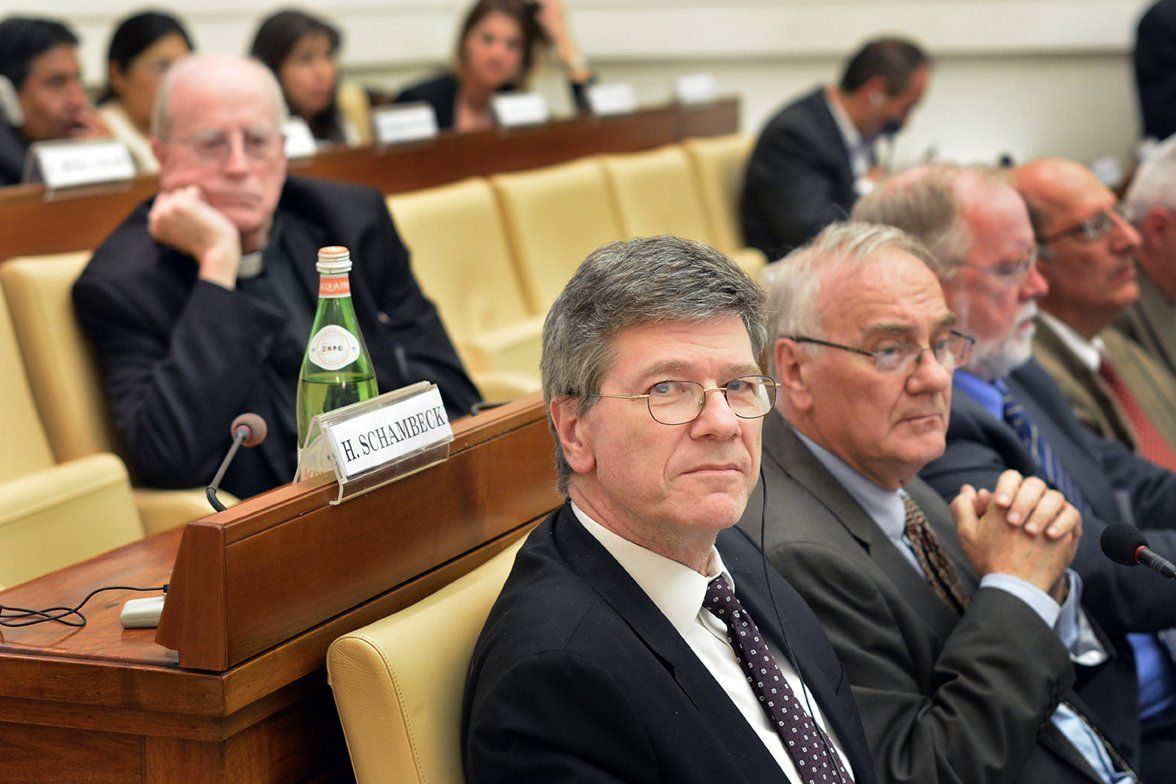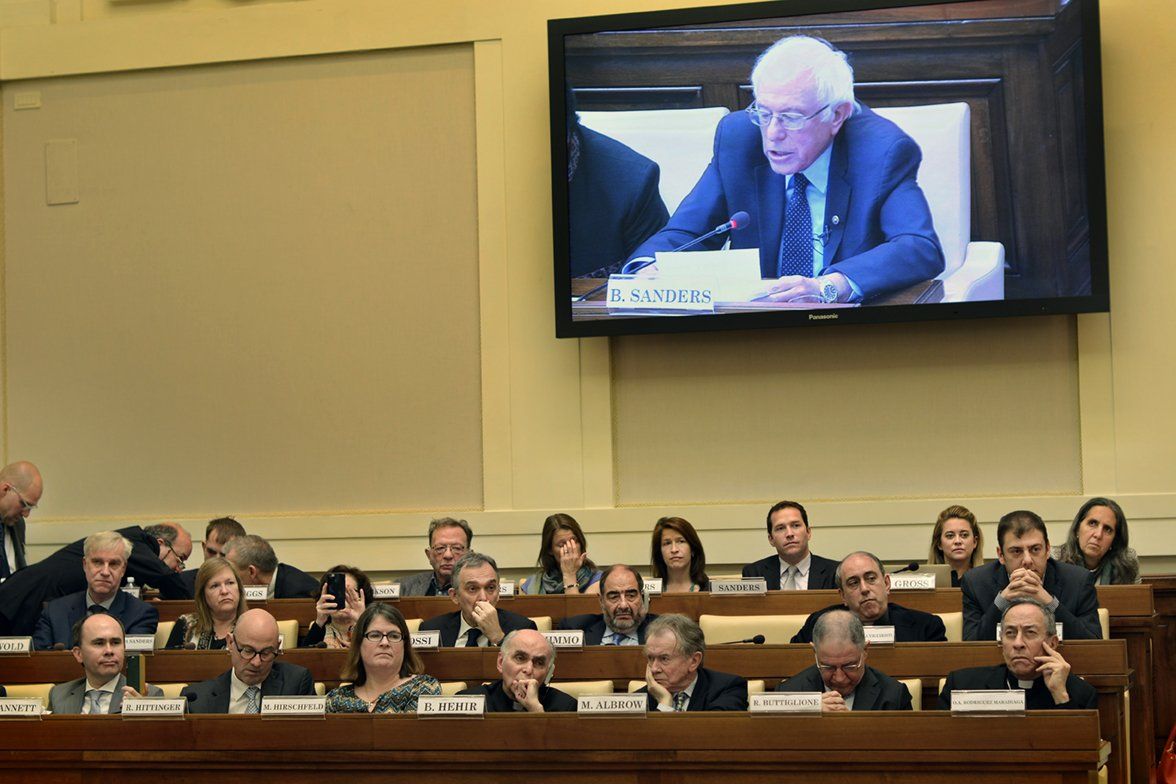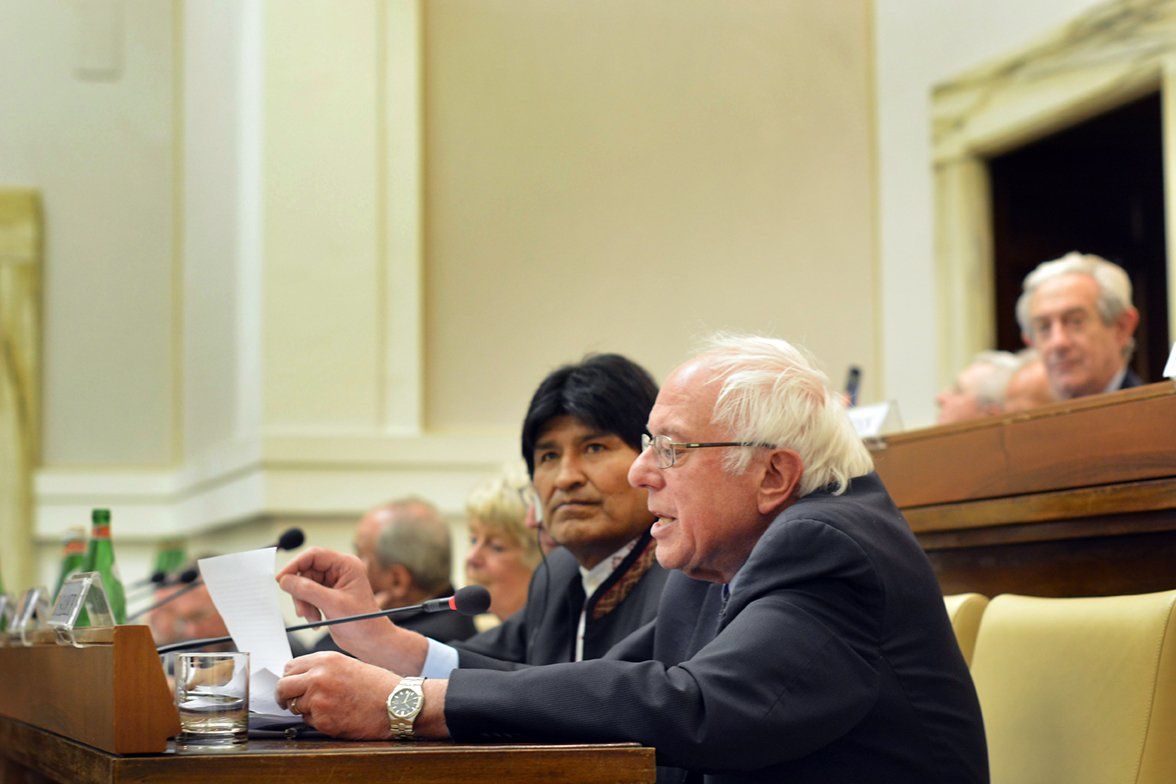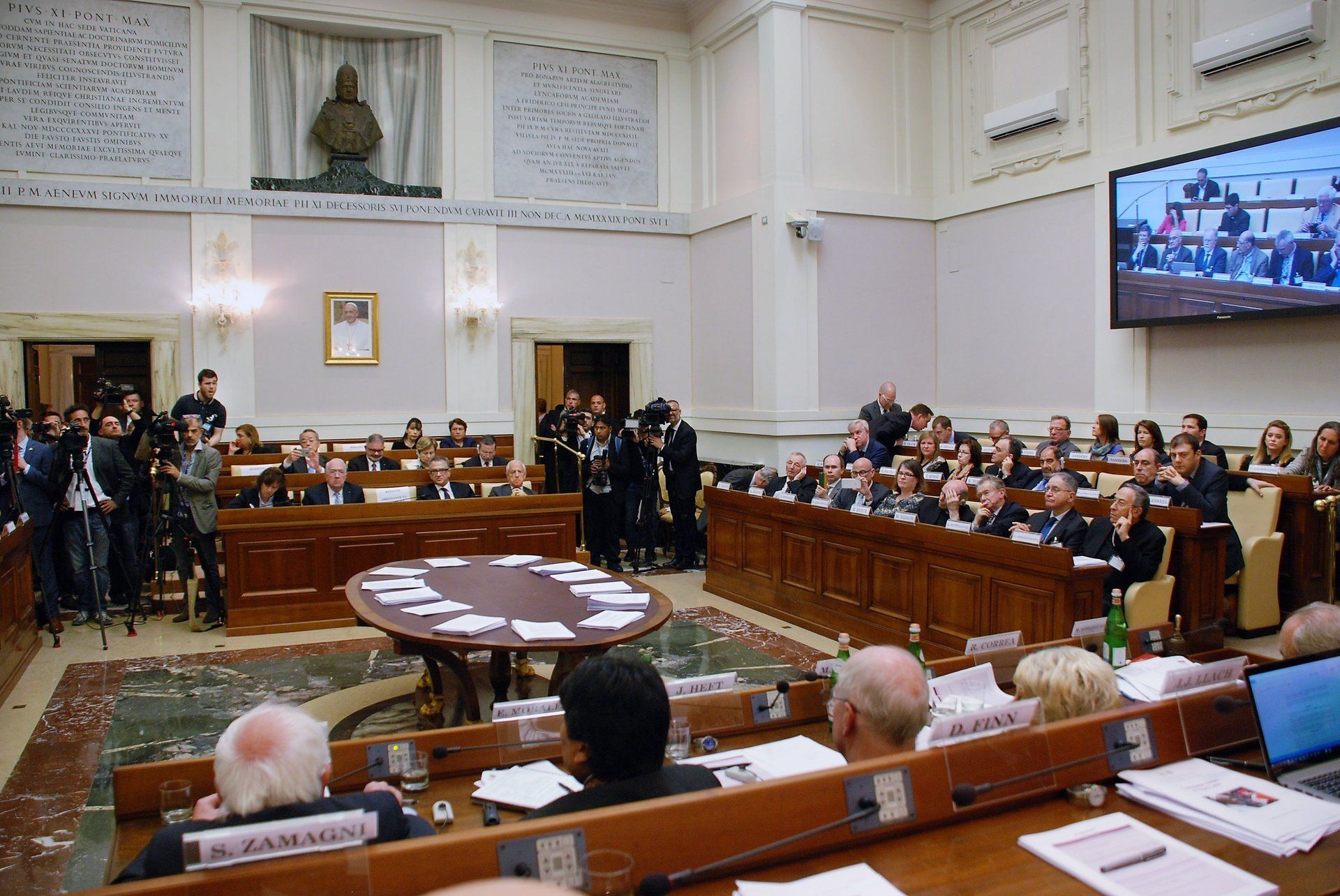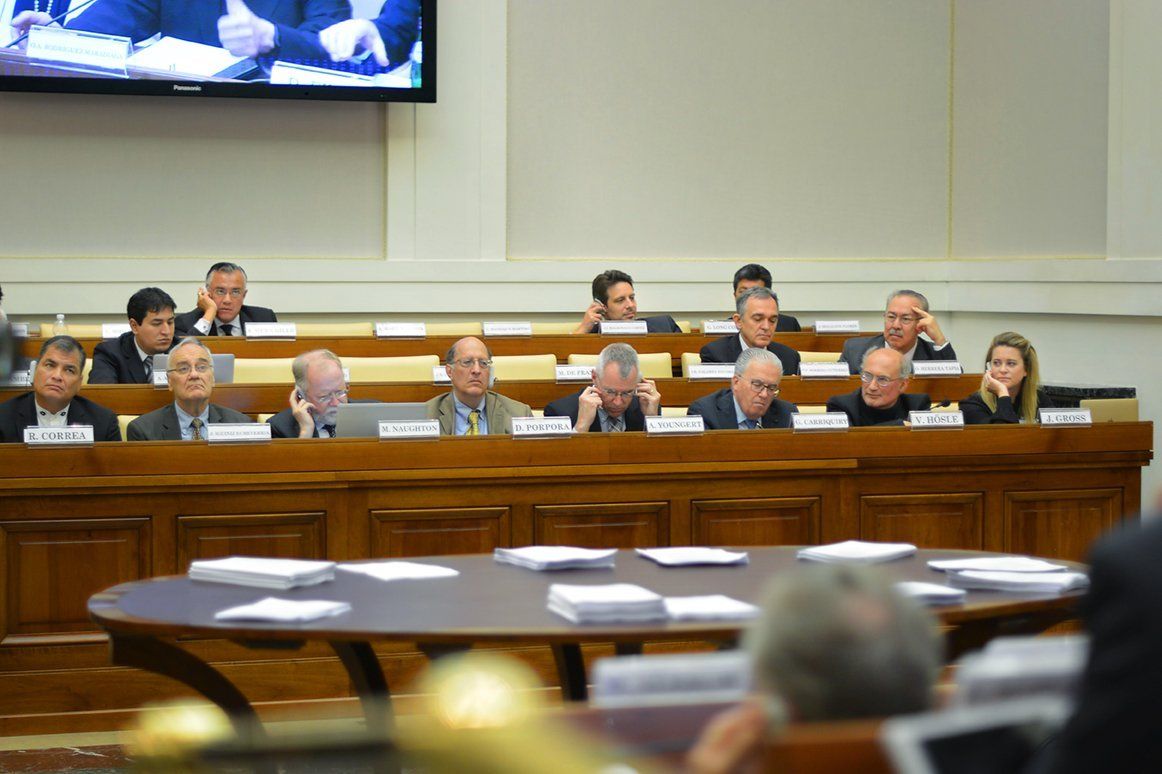Casina Pio IV, Vatican City - Jennifer Stengaard Gross represented Blue Chip Foundation at a symposium organized by the Pontifical Academy of Social Science on the 25th anniversary of Pope John Paul II’s Centesimus annus to evaluate the Catholic Church's efforts over the past two-and- a-half decades in economic, political, and cultural mediums and to develop strategies about how the Church can continue to assist in the coming years.
“We’re facing an entirely new dynamic today,” says Gross. “Developments in culture, the internet, as well as extreme changes in economic and political life have changed since Pope John Paul II’s Centesimus annus.”
Several Catholic leaders, representatives from universities and scholarly institutions across the world, and a number of philanthropic leaders also attended the symposium.
Senator Bernie Sanders, I-Vt, addressed the group, as well.
“In the year 2016, the top one percent of the people on this planet own more wealth than the bottom 99 percent, while the wealthiest 60 people—60 people—own more than the bottom half; three-and-a-half billion people. At a time when so few have so much, and so many have so little, we must reject the foundations of this contemporary economy as immoral and unsustainable,” said Sanders. “The words of Centesimus annus likewise resonate with us today.”
Despite remarkable technological, cultural, and industrial advancements, political involvement among the disenfranchised is at an all-time low. The Catholic Church seeks to reach out to those with diminished voices—and those with none at all—and encourage participation, humanitarianism, and education.
“Our challenge is mostly a moral one, to redirect our efforts and vision to the common good. Centesimus annus, which we celebrate and reflect on today, and Laudato Si’, are powerful, eloquent and hopeful messages of this possibility. It is up to us to learn from them, and to move boldly toward the common good in our time,” Sanders said.
“The people here today have listened to the grass-roots groups and movements in order to grasp social reality today. After reflection, The Pontifical Academy has a very important role in how the church engages the world, and it recognizes that offering insights can help people better understand what is happening around them,” says Gross.
Delegates from each organization present addressed the specific challenges the world is now facing—particularly the youth—and pledged to move forward in a unified front to improve living conditions across the globe.
